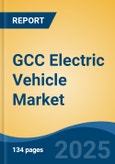Speak directly to the analyst to clarify any post sales queries you may have.
10% Free customizationThis report comes with 10% free customization, enabling you to add data that meets your specific business needs.
Automakers and technology firms are partnering to develop advanced battery technologies and improve vehicle range, which addresses one of the key concerns among potential buyers. Public and private investments in charging infrastructure are expanding, with high-speed and wireless charging innovations gaining traction. There is an emerging trend of luxury and mid-range EVs entering the market, providing a broader array of choices for consumers. The push toward connected and autonomous vehicle technologies is further expected to boost the attractiveness of EVs. Key players are also exploring options like vehicle-to-grid (V2G) solutions and smart charging systems to make EVs more integrated into future energy systems.
Market Drivers
Government Incentives and Policies
Governments in the GCC region are actively promoting electric vehicle (EV) adoption through a variety of incentives and policies. These include tax exemptions, subsidies, and reduced registration fees for EV buyers. For instance, Saudi Arabia's Vision 2030 aims to increase EV adoption to 30% by 2030, supported by investments in EV manufacturing and infrastructure. Similarly, the UAE's Dubai Green Mobility Strategy 2030 targets 10% EV penetration by 2030, with initiatives like the "Green Charger" program to expand charging infrastructure. Such supportive policies are crucial in accelerating the transition to electric mobility.Key Market Challenges
High Initial Purchase Costs
Despite the long-term savings, the upfront cost of EVs remains a significant barrier to widespread adoption. The higher purchase price compared to traditional vehicles can deter potential buyers, especially in price-sensitive markets. While government incentives help mitigate this issue, the initial financial outlay remains a challenge for many consumers considering the switch to electric mobility.Key Market Trends
Integration of Renewable Energy Sources
There is a growing trend towards integrating renewable energy sources, such as solar and wind, into EV charging infrastructure. This integration not only reduces the carbon footprint of charging activities but also aligns with the GCC's broader sustainability goals. Solar-powered charging stations, for example, are becoming increasingly common, particularly in regions with abundant sunlight. This trend supports the transition to a more sustainable and resilient energy ecosystem.Key Market Players
- Tesla, Inc.
- BYD Company Limited
- Hyundai Motor Company
- Nissan Motor Co., Ltd.
- Lucid Group, Inc.
- Volkswagen AG
- BMW AG
- Renault S.A.
- Toyota Motor Corporation
- Ceer Automotive Company
Report Scope:
In this report, the GCC Electric Vehicle Market has been segmented into the following categories, in addition to the industry trends which have also been detailed below:GCC Electric Vehicle Market, By Vehicle Type:
- Passenger Car
- Commercial Vehicles
- Two-Wheeler
GCC Electric Vehicle Market, By Propulsion Type:
- Battery Electric Vehicle (BEV)
- Plug-In Hybrid Electric Vehicle (PHEV)
- Fuel Cell Electric Vehicle (FCEV)
GCC Electric Vehicle Market, By Battery Capacity:
- Less Than 50KWh
- 51KWh to 100KWh
- 101KWh-200KWh
- 201KWh-300KWh
- Above 300KWh
GCC Electric Vehicle Market, By Country:
- UAE
- Saudi Arabia
- Qatar
- Oman
- Kuwait
- Bahrain
Competitive Landscape
Company Profiles: Detailed analysis of the major companies present in the GCC Electric Vehicle Market.Available Customizations:
GCC Electric Vehicle Market report with the given market data, TechSci Research, offers customizations according to the company’s specific needs. The following customization options are available for the report.Company Information
- Detailed analysis and profiling of additional market players (up to five).
Table of Contents
Companies Mentioned
- Tesla, Inc.
- BYD Company Limited
- Hyundai Motor Company
- Nissan Motor Co., Ltd.
- Lucid Group, Inc.
- Volkswagen AG
- BMW AG
- Renault S.A.
- Toyota Motor Corporation
- Ceer Automotive Company








